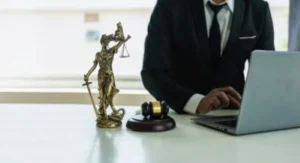 Florida law generally only allows law enforcement to enforce the traffic laws found in Florida Statute Chapter 316 on the public roads within the state. In fact, Florida Statute § 316.640 in entitled “Enforcement” specifically states where each division of law enforcement may enforce the traffic laws. For instance:
Florida law generally only allows law enforcement to enforce the traffic laws found in Florida Statute Chapter 316 on the public roads within the state. In fact, Florida Statute § 316.640 in entitled “Enforcement” specifically states where each division of law enforcement may enforce the traffic laws. For instance:
The Florida Highway Patrol has the authority to enforce all of the traffic laws of this state on all the streets and highways thereof and elsewhere throughout the state wherever the public has a right to travel by motor vehicle.
University police officers may enforce all of the traffic laws of this state within 1,000 feet of any property under the control of a state university.
Airport Authority Police officers may enforce traffic laws only on the property of the airport authority.
The Sheriff’s office of the county shall enforce the traffic laws on all the streets and highways within the county wherever the public has the right to travel by motor vehicle.
The police departments of each municipality shall enforce the traffic laws on all the streets and highways within the municipality wherever the public has a right to travel by motor vehicle.
See 316.640 Fla. Stat. for an inclusive list of all of the various enforcement departments within the state and the jurisdiction that each has in enforcing the traffic laws of this state.
As you can clearly see in each of the cases where a department has broad authority to enforce traffic laws in Florida (as opposed to a limited area such as a college campus or airport), the legislature has limited the department’s jurisdiction to wherever the public has the right to travel by motor vehicle.
In addition to the jurisdictions discussed above, the Sheriff’s office of any county may be required to enforce traffic laws on private or limited access roads pursuant to a written agreement entered into with the property owner under s. 316.006(3)(b).
The above jurisdictional limits generally apply to all traffic laws within the state of Florida, however, DUIs are different. Unfortunately, when it comes to DUI enforcement, the FHP (and other state agencies), Sheriff’s, and municipal police departments have enforcement powers on all land within the state.
DUI law is treated differently that Florida’s other traffic laws. Florida Statute §316.193(1) in relevant part states, “A person is guilty of the offense of driving under the influence if the person is driving or in actual physical control of a vehicle within this state”
The phrase, “within this state” is what has caused the great expansion of jurisdiction for DUI cases. The First District Court of Appeals held that “[t]he phrase ‘within this state’ is not ambiguous and very lucidly indicates the legislature’s intent to encompass all lands in the state.” ZINK v. STATE, 448 So. 2d 1196 (Fla. Dist. Ct. App. 1984). Therefore, when enforcing DUI laws, law enforcement has far greater authority as to where these laws can be enforced, which is anywhere in the state, including private gated communities, private roadways, and even areas of the state without roads, on fields and when off-roading.
Often the best way to make a DUI case go away completely is to challenge the reason for the original stop of the automobile. Many times, drivers stopped for violating a traffic law are then investigated for and arrested for DUI. An experienced DUI attorney like the Expert DUI Defense Specialists at Katz & Phillips, P.A. will know that if they can get a court to find the initial stop of the vehicle was illegal, then all the evidence found after the stop will be suppressed. If your stop on private property is challenged as illegal, the State has the burden of proving you were stopped legally. This included entering into evidence the written agreement that law enforcement has giving them the authority to make the stop and enforce the traffic laws in the first place. In our combined decades of experience fighting DUI cases and others that began with a traffic stop, the State Attorney almost never has the agreements to enter into evidence. Without it, the state cannot show the stop was lawful and the evidence gathered subsequent to the initial stop will then be suppressed.
509 W Colonial Dr. Orlando, FL 32804
Law Office Directions
Free Consultation321-332-6864
Contact the Law Offices of Katz & Phillips today to speak with one of our attorneys about your case today by filling out the form below, or call us at 321-332-6864.
"*" indicates required fields